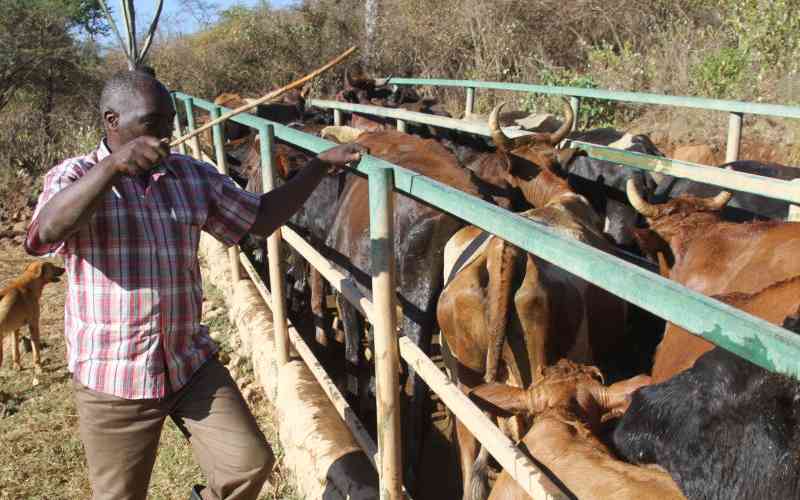By Wilberforce Netya
Barely two months after the media highlighted the plight of girls using unhygienic material as sanitary pads, smiles have been painted on the faces of vulnerable pupils in West Pokot County. Pokot East region of Baringo County was the most featured in the highlight that exposed how young girls used feathers and animal skin as alternative sanitary towels.
However, it has been noted that there is a dire need for sanitary towels in many other parts of the country, with research pointing to a large percentage of girls and women, mostly in the remote areas, lacking access to the towels.
Afri-Can Trust, a Kisumu-based non-governmental organisation has responded to the predicament with a lasting solution to the girls, most who could not afford sanitary towels due to their poverty-stricken backgrounds.
Now girls and women undergoing the menstrual cycle can use re-usable sanitary towels for a whole year before disposing them off.
I-Care Pads, an initiative of the Afri-Can Trust organisation and which has been well researched on could be a solution to the pre-menopause women fraternity.
Afri-Can Trust Founding Director Chantal Heutink discloses that the pads have been developed in collaboration with Kenya Industrial Research and Development Institute (KIRDI), who carried out a feasibility study, research on the product development and assessment of its impact to the girls and women.
The pads have been tested by the end users at some schools in Western Kenya and proved to be more efficient after a successful pilot project.
Positive feedback
Julius Lomorii, an employee at KIRDI, who joined during the field trip, cites that the pads have been proven to be hygienic and well effective with positive feedback from the communities received. “I ask myself, that I am a woman who also experiences periods, but I went to school without hindrance to my flows, so should a girl stop going to school because she experiences periods?” poses Ms Heutink.
The feeling and passion to see women lead better lives, she says, compelled her to initiate a sustainable and affordable solution to the problem. And for the purpose of sustainability and with the help of a guide booklet dubbed Sarah, Molly and the Red Visitors, authored by Heutink, an I-Care girls’ clubs can learn more about tackling their menses.
Besides introducing the booklet, Afri-Can also developed a menstrual hygiene management (MHM) training to empower the girls and discuss taboos surrounding menstruation.
Heutink, whose I-Care pads brainchild could help maintain numerous girls in schools, especially in the region where taboos and beliefs still deprive girls and women of most rights, observes that the presence of ambassadors for the product in each county would boost its usage.
She hopes that willing agents of positive change for women can stock and distribute the I-Care pads to pupils at county levels from the organisation. The agents, she says, should be compelled by own passion, Heutink notes that it would be easier to reach many needy schoolgirls.
Nelson Musani, the officer in charge of water, hygiene and sanitation for schools in the county, says though the government has been providing pads to pupils, the distribution has not been adequate. He says the quality of pads given to schools by the government this year is lower as compared to last year. The I-Care initiative, he says, can therefore be a boost for pupils’ hygiene.
Stay informed. Subscribe to our newsletter
As the Afri-Can Trust visited a number of primary schools in the county, pupils and teachers were all smiles after they received a year’s gift. Due to a fundraising campaign amongst colleagues, friends and family within Afri-Can Trust, the team gave out I-Care pads to 300 girls from Tilak, Tomena, Makutano and Nasukuta primary schools as well as Makutano Secondary School.
The NGO then offered the I-Care re-washable pads at a fee, with the organisation’s Marketing Manager Maureen Ogutu saying a pack containing four I-Care pads goes at Sh300 only which translates to Sh25 a month.
Compared to the ordinary disposable pads, which retail at between Sh65 and Sh100 and are used only for a month, the initiative could help women save at least Sh720 each year, she observes. After using the pads that come in two types, one for heavy flows and the other for light flows, the user is required to fold it and place in an airtight small pack safe for the pocket. A single I-Care pad can be comfortably used for six to eight hours. It is then washed in cold water after soaking for 30 minutes and dried. The pads designed to look more like a handkerchief are made of soft and durable fabric.
Ancient taboos of the Pokot community did not allow menstruating women to handle utensils besides performing most household tasks.
Though there appears to be a significant alienation from this practice especially by those residing in urban areas, a few still hold on to the taboo. Tabulations in the county profile places the number of girls and women who have access to sanitary towels at nine per cent. Many girls attested to missing school for feeling ashamed whenever they have their periods, still without sanitary pads, forcing them to resort to other unhygienic means, which most often leak.
Hygiene and sanitation
West Pokot County Governor Simon Kachapin has pledged to support the I-Care initiative, as it will help keep the girls in school. “Though the national government does not want us (county governments) to deal with issues affecting schools, saying it is under their docket, we can defy in matters of urgency since we cannot sit and wait yet our girls keep on suffering,” said Mr Kachapin when the Afri--Can Trust team visited his office.
He says hygiene and sanitation for schoolgirls should be given priority especially in the region, to foster education and make girls in the local schools get at par with others.
 The Standard Group Plc is a
multi-media organization with investments in media platforms spanning newspaper
print operations, television, radio broadcasting, digital and online services. The
Standard Group is recognized as a leading multi-media house in Kenya with a key
influence in matters of national and international interest.
The Standard Group Plc is a
multi-media organization with investments in media platforms spanning newspaper
print operations, television, radio broadcasting, digital and online services. The
Standard Group is recognized as a leading multi-media house in Kenya with a key
influence in matters of national and international interest.
 The Standard Group Plc is a
multi-media organization with investments in media platforms spanning newspaper
print operations, television, radio broadcasting, digital and online services. The
Standard Group is recognized as a leading multi-media house in Kenya with a key
influence in matters of national and international interest.
The Standard Group Plc is a
multi-media organization with investments in media platforms spanning newspaper
print operations, television, radio broadcasting, digital and online services. The
Standard Group is recognized as a leading multi-media house in Kenya with a key
influence in matters of national and international interest.








